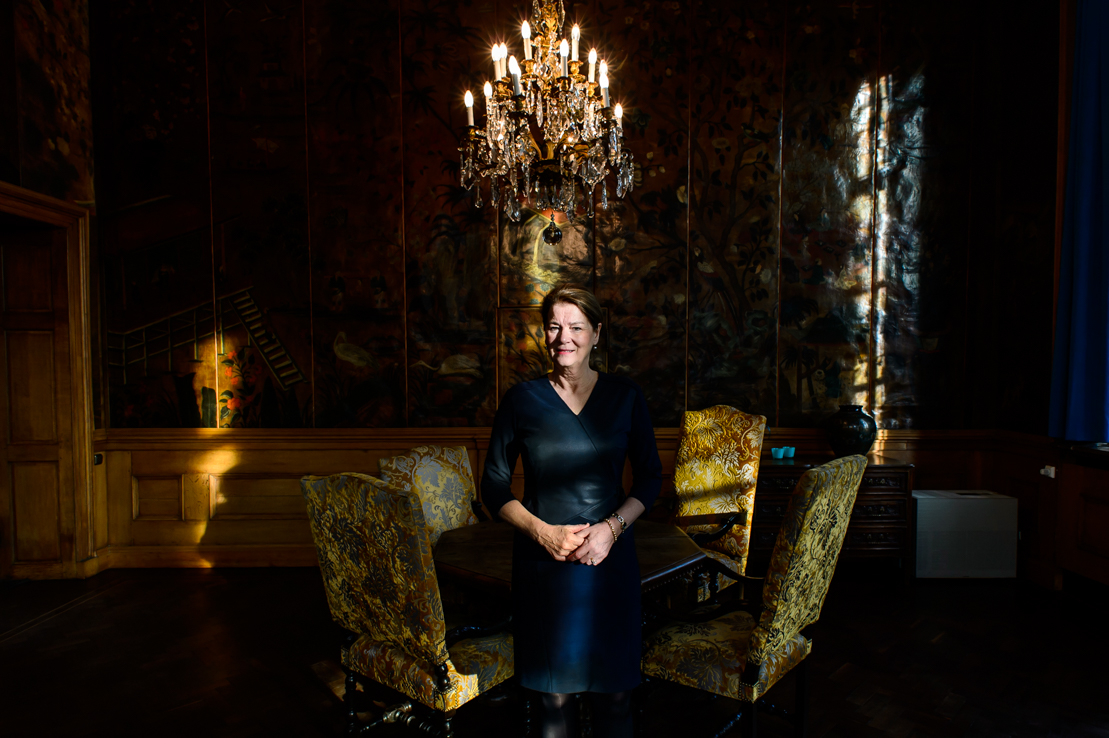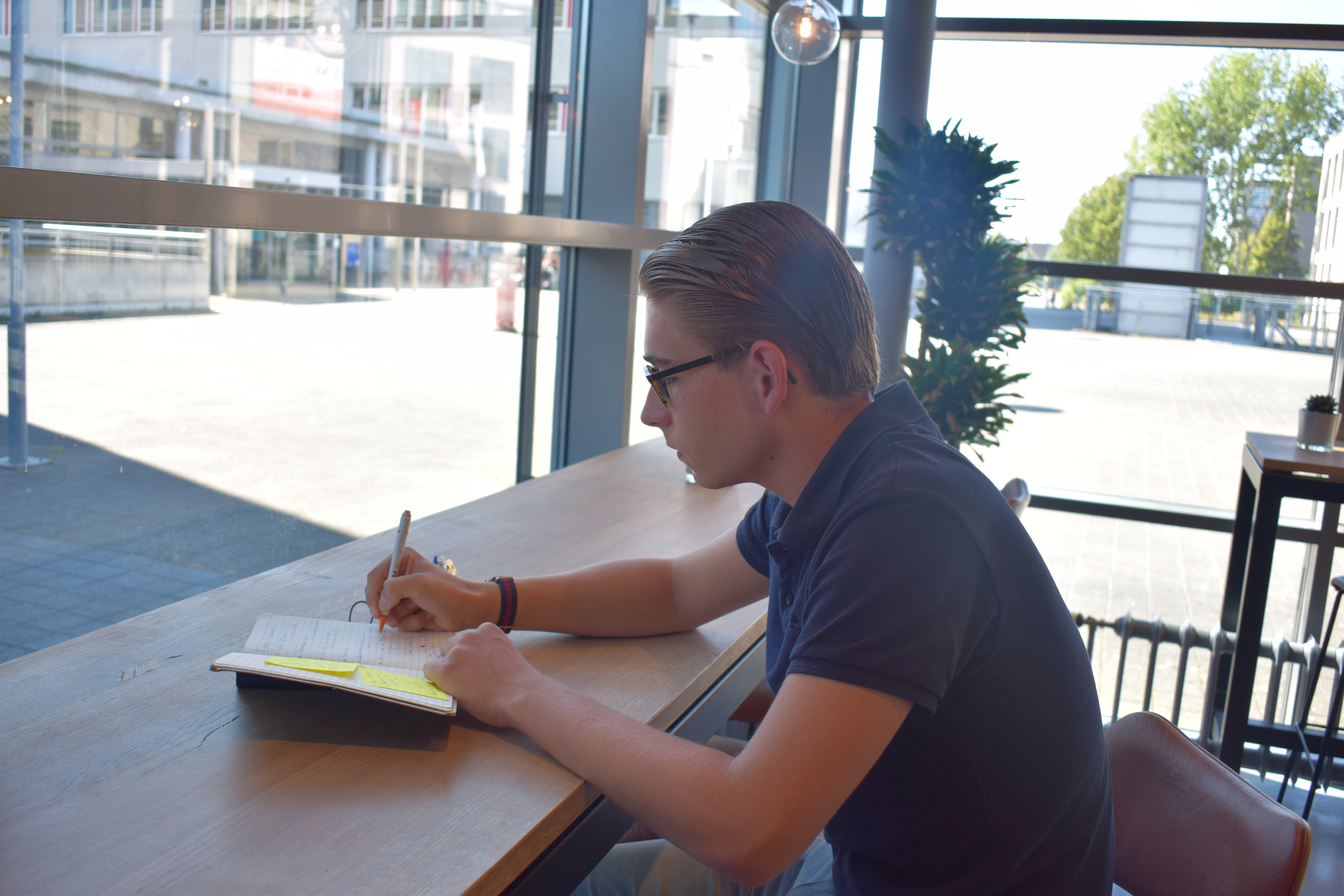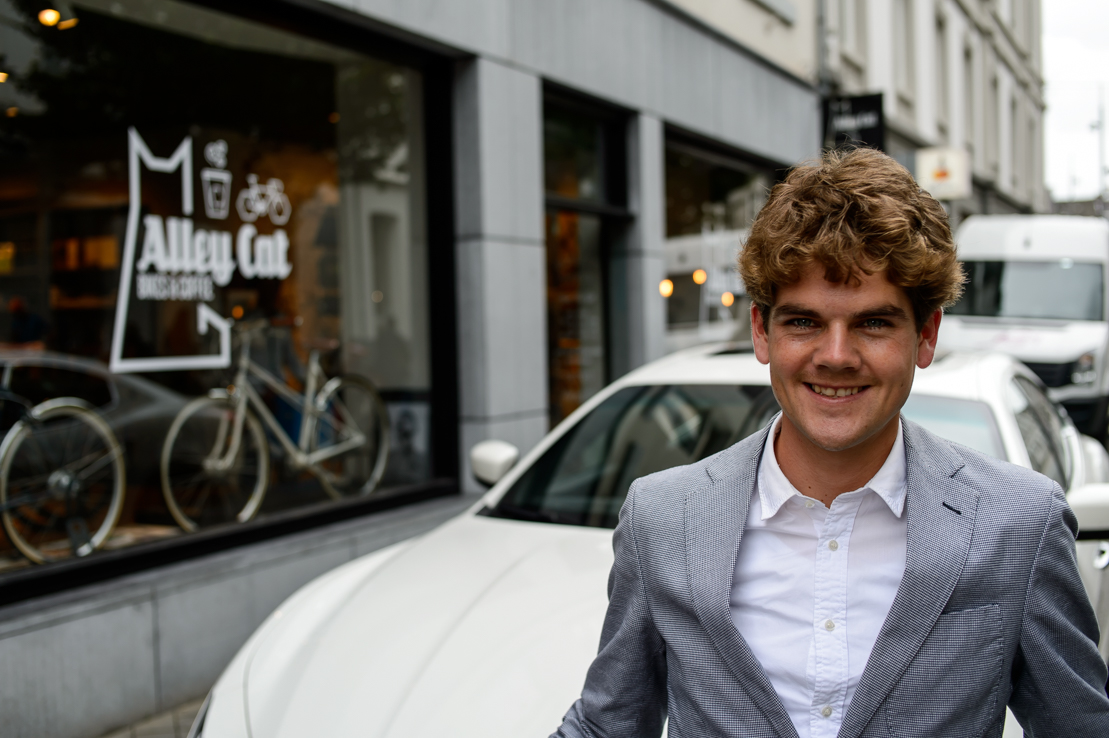The New Face of Maastricht, Annemarie Penn-te Strake Mayor of the City

Last July, Annemarie Penn-te Strake came into office as Mayor of Maastricht and since then has been the face of the city. She is the successor of the controversial former mayor, Onno Hoes. One can say that this was a remarkable decision given her apolitical background and unaffiliation to any political party.
Just like the impressive city hall, Annemarie Penn-te Strake is an exceptional woman. A former judge and public defender, she is the first woman to become Mayor of the city. Last Wednesday, we had the pleasure of asking her a number of questions at the majestic city hall. She is an imposing woman who exudes warmth and experience. Read more about her and her experience as the Mayor of Maastricht.
Who is Annemarie?
I’m an optimist. I have a positive outlook in life and I try to experience life in a light manner. When I think of something, find something, or do something, it has to be well thought over. In my work, I try to do things as best as I can – although I am not a person that strives for perfection – without taking my feelings into account. I do what my conscience says and what my inner self considers the best thing to do.

How has your legal background helped you as a mayor?
I went to law school in what was then Katholieke Universiteit Nijmegen, where I studied Dutch law. At the same time, my friend and I opened a legal clinic where student-lawyers gave judicial help and advice for free. After university, I travelled to Africa for 2 years to do development work, so no law. When I came back, I thought to myself, what would I like I do with my study? The only thing I wanted to do was to become a judge because then you work in law in its purest form. There is no goal of making money or being part of a certain party. You’re working in how law should be put and used in society. As a judge, you also have an independent role and I liked that so I did my 6 years training to become a judge. I was in the judicial system for 35 years. I was a judge for 20 years while the years after that, I worked in the public prosecution.
What I learned as a judge is to analyse problems in a hygienic way, make a judgement based on it, and communicate it in a polite manner. As a public prosecutor, you have to make decisions at crises situations, so there I learned to make decisions in a quick, fast manner. Working in public prosecution brings you closer to society while as a judge you are quite independent and separated. It’s just you, your files, and your judgement. Altogether, I feel that my experience has been a great gift in helping me do this amazing job.

How has your experience been so far?
This job has been even better than I expected! The work has been exactly what I had hoped it would be and even more. It’s very close to society, and the people and the parties in our town. Everyone is very important in the welfare and well being of our city. It’s a great privilege to be able to work here. Our civil servants work very well and I’m very happy with how I am supported by all the men and women I work with.
Together with my colleagues and other mayors, we work on several very interesting themes. What can we do, not only for the city of Maastricht, but also for the whole region and the province? What is also very interesting is of course, the meaning of the university to our town. We are looking at the different ways to connect this beautiful city to the university and the students. It’s going better and better from what I see, but of course, there is still a lot to do.
If you look at the map of Maastricht and the south of Limburg, you realise Maastricht is in the heart of the Euregio. Everyday we think about how can we make a connection with Belgium and Germany on several aspects like security, labour market, environment and culture. It’s very important for this town to realise the meaning of our environment. In one way, it has a lot of potential, but also the borders are a problem because of the different legal systems. With the university, we are trying to look at solutions to this legal border.
What is your personal experience with Maastricht University?
As a mayor, I realised how important the existence of our university is to the town. I live in the city centre, and having all these young people with all their different languages walking around makes Maastricht special. Imagine Maastricht with only old buildings and the elder population. The university makes it necessary, and these students make it necessary, for us as a city to look forward to the future and to organise things that are attractive to young people, not only for the university students but also young locals.



How do you see the future of the university?
If I can dream about the university, I hope that it becomes even bigger. I hope that in The Hague, they recognise that this university was born to be one of the best international university in Europe.
What do you like about Maastricht?
It’s the feeling. I really love the city and I’ve lived here now for almost 25 years. What Maastricht has is a combination of old history, which gives you a certain feeling of wellness. Life is good here. When I say this, I realise that this is not the case for everybody; of course there are people who are poor, don’t have work or are lonely here. But for me, Maastricht has this feeling of a warm blanket around you.
Photography: Brian Megens
About the author

I'm Karissa Atienza, a Filipino public policy master’s student at Maastricht University/United Nations University. This is my fourth year in Maastricht as I also did my Bachelors here on European Studies. I have been a social media reporter for Maastricht University since 2015. When not busy with academic or university work, I enjoy eating, travelling and photography. Any ideas, comments or recommendations for our social media channels? Send me a message!
Other blogs:
Also read
-
Law Ball, Ambassador Lecture Series, Opening of the Academic year… We sat down with Costas Georgiades, a 23-year-old law student from Cyprus, who is the epitome of student involvement. We discussed the different projects he is involved with and what led him to where he is now. Read on to find out...
-
Maarten Butink, a 21 year-old Health Sciences student who chose to focus on the Policy, Management and Evaluation of Health Care specialisation, sat with us to discuss his position as student assessor. He shared what got him where he is now and what he hopes to accomplish thanks to his new position...
-
Keir Plaice, a former semi-professional cyclist and 3rd year Bachelor Arts and Culture student, is embarking on a cycling ride of a lifetime. He is riding the route of the original Tour de France of 1903 and documenting his experience in his Le Grand Tour column in the cycling magazine Soigneur...


